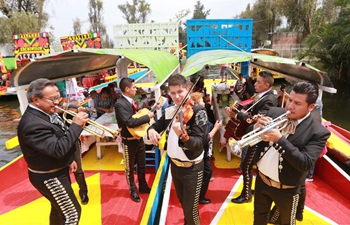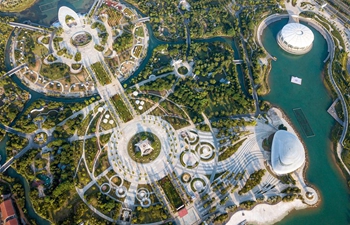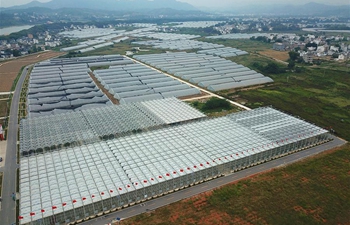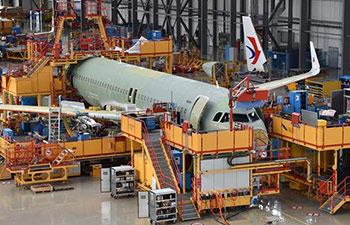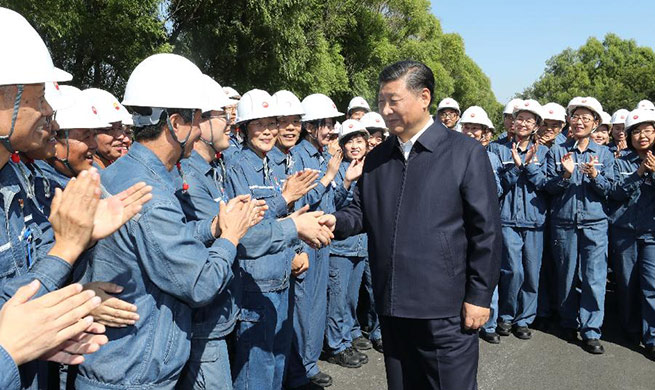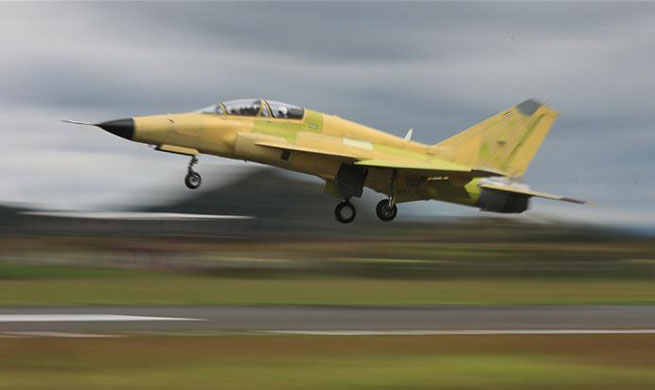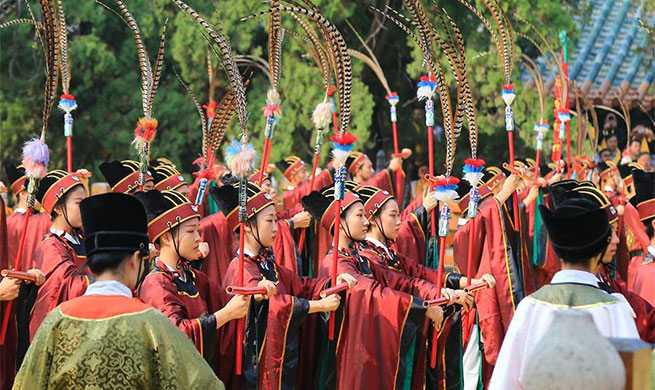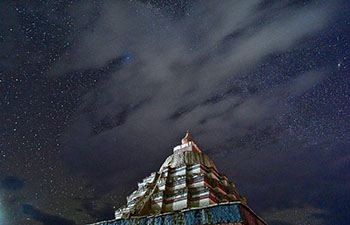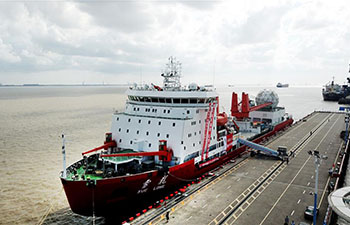BUDAPEST, Sept. 28 (Xinhua) -- The pan-European researcher's night kicked off in Hungary on Friday with more than 2,600 programs awaiting visitors across the country at more than two hundred locations on Friday and Saturday.
"There are more than 2,650 different programs available at 260 sites in Hungary," according to Bela Kardon, coordinator of the Hungarian program series, and the scientific director of RCISD Regional Knowledge Center.
"The aim of the free event series organized across Europe is to promote science, so that young people are attracted to the scientific career path," he underlined.
A record number of participants joined the event as a result of the 2018 European Year of Cultural Heritage, Kardon added.
Every year, hundreds of events take place simultaneously across Europe and neighboring countries.
In 2018, the events took place on Friday in over 340 cities in Europe and in neighboring countries.
In Brussels, the European Commission and the European Parliament are organizing a special event related to the event called "Science is Wonderful-European Researchers' Night".
All the events are supported by the European Commission, to boost the careers of researchers.
The European Researchers' Nights have been organized every September since 2005. Last year in 2017 about 1.1 million citizens and over 21,000 researchers took part in these scientific events.
The events showcase what researchers really do for society in interactive and engaging ways, promoting research careers.
Events deal with subjects such as the fight against cancer, stopping global warming, preventing hunger and drought, inventing devices for disabled people, and making human life easier in space.
"This is a fascinating! You can meet really smart people and awesome gadgets," Andras, a 20-year-old university student told Xinhua.
Hungarian programs include scientific experiments, technical and cultural exhibitions, interactive workshops, hands-on experiments, lego-robot building and programming, robot races, biotechnological experiments, nano-printing, biological diagnostics, protein chip technology, drones and archaeology. There is also a scientific conference for talented 10-12-year-old researchers, and successful Hungarian start-ups.
Space is also a popular theme, with works from the subatomic scale all the way to the vast astronomic dimensions. There are shows about space followed by live explanatory talks of astronomers.
